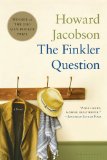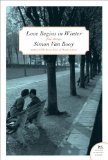Summary | Excerpt | Reading Guide | Reviews | Beyond the book | Read-Alikes | Genres & Themes | Author Bio

A long-lost book reappears, mysteriously connecting an old man searching for his son and a girl seeking a cure for her widowed mother's loneliness.
A long-lost book reappears, mysteriously connecting an old
man searching for his son and a girl seeking a cure for her widowed mother's
loneliness.
Leo Gursky's life is just about surviving, tapping his radiator each evening to let
his upstairs neighbor know he's still alive. But life wasn't always like
this: sixty years ago, in the Polish village where he was born, Leo fell in
love and wrote a book. And though Leo doesn't know it, that book survived,
inspiring fabulous circumstances, even love. Fourteen-year-old Alma was
named after a character in that very book. And although she has her hands
full—keeping track of her brother, Bird (who thinks he might be the
Messiah), and taking copious notes on How to Survive in the Wild—she
undertakes an adventure to find her namesake and save her family. With
consummate, spellbinding skill, Nicole Krauss gradually draws together their
stories.
This extraordinary book was inspired by the author's four grandparents and
by a pantheon of authors whose work is haunted by loss—Bruno Schulz, Franz
Kafka, Isaac Babel, and more. It is truly a history of love: a tale brimming
with laughter, irony, passion, and soaring imaginative power.
 Elizabeth Berg, author of The Art of Mending
Nicole Krauss is proof positive that great literature is being written today.
Elizabeth Berg, author of The Art of Mending
Nicole Krauss is proof positive that great literature is being written today. J. M. Coetzee, author of Elizabeth Costello
Charming, tender, and wholly original.
J. M. Coetzee, author of Elizabeth Costello
Charming, tender, and wholly original. Myla Goldberg, author of The Bee Season
A book to be read slowly - both to savor the luminous prose and to stave off reaching the last page.
Myla Goldberg, author of The Bee Season
A book to be read slowly - both to savor the luminous prose and to stave off reaching the last page.Krauss spent her childhood on Long Island and has degrees from Stanford and
Oxford. Well into her twenties, she wrote poetry, which "felt like the
great goal of the language (she was a lot like the 14-year-old narrator of
The History of Love, Alma Singer, who
wants to be a survivalist, compiles obsessive lists,
and is an avid collector). Then she abruptly quit
poetry having set aside "an impossible quest for poetic precision".
Her first novel,
Man Walks Into a Room, was very well received
and was followed by a six-figure, two-book deal. Speaking of her first book she
says, "Getting a book published made me feel a little bit sad ...... I felt driven by the need to write a book,
rather ...
This "beyond the book" feature is available to non-members for a limited time. Join today for full access.

If you liked The History of Love, try these:

by Howard Jacobson
Published 2010
The Finkler Question is a scorching story of friendship and loss, exclusion and belonging, and of the wisdom and humanity of maturity. Funny, furious, unflinching, this extraordinary novel shows one of our finest writers at his brilliant best.

by Simon Van Booy
Published 2009
On the verge of giving up—anchored to dreams that never came true and to people who have long since disappeared from their lives—Van Booy's characters walk the streets of these stark and beautiful stories until chance meetings with strangers force them to face responsibility for lives they thought had continued on without them.